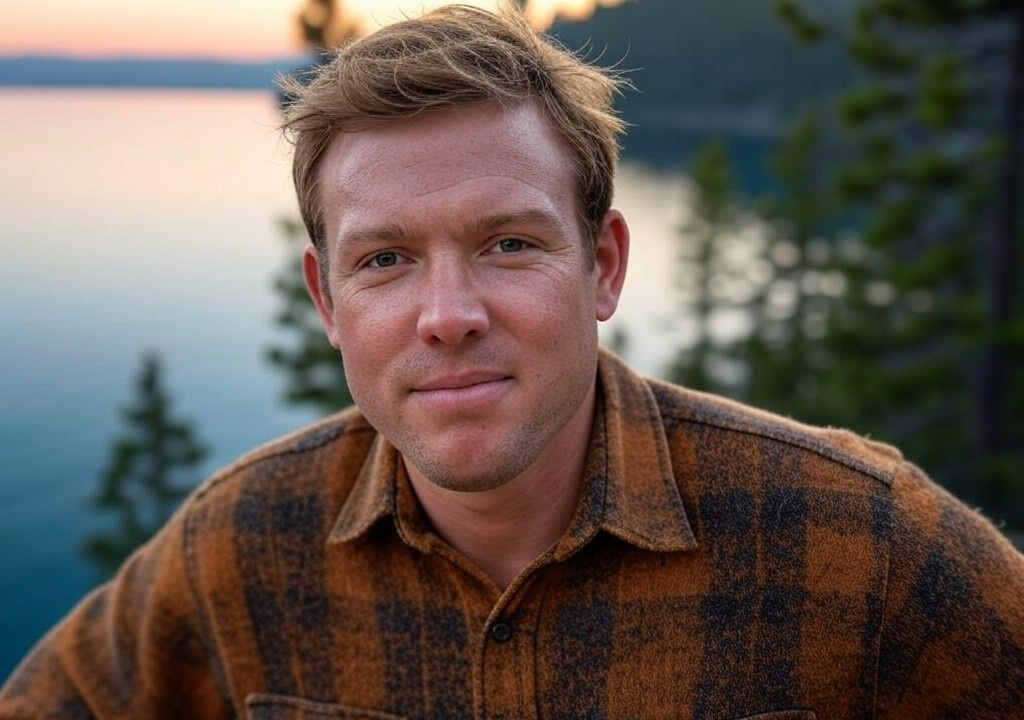The Day I Learned to Let Go
There are certain moments in life you never see coming—a split-second encounter or passing remark that weaves itself into your outlook forever. Mine happened just outside a local coffee shop near the shore of Lake Tahoe. It involved a slightly scruffy stranger in a flannel shirt, a book about mushrooms, and a lesson in relationships I didn’t know I needed.
A Coffee, a Book, and a Curious Conversation
It was late spring, one of those rare days when Tahoe feels more like a quiet postcard than a tourist hub. I had just picked up a cappuccino (oat milk, because obviously) and grabbed my usual spot outside the local coffee shop. I was absorbed in my phone—a bad habit I’d picked up over lockdown—when a man walked past me, did a double take, and then stopped.
“I have that book,” he said.
At first, I wasn’t sure if he was talking to me. But then I realized he was pointing to the dog-eared copy of Entangled Life by Merlin Sheldrake sitting on my table. If you don’t know the book, just know this: it’s about fungi—intelligent, fascinating fungi that thrive on relationships with the world around them. As someone who spends a considerable amount of my time marveling at nature, it had immediately won me over.
“Isn’t it great?” I replied, without looking up from my phone.
He smiled. “Great, sure. But it’s also kind of humbling, isn’t it? Fungi are out here making you realize you’ve been trying way too hard to control the things around you.”
Now, this wasn’t your standard Tahoe chit-chat about hiking trails or the snowpack. So naturally, I put my phone down.
A Philosophy of Mycelium... and Relationships
The man introduced himself as Chris—not a local, but someone who had spent a good chunk of time traveling through the Sierra Nevada. His weathered backpack and dirt-scuffed boots were clues enough. What I found more intriguing was that he’d spent the past month camping alone and reading extensively, his recent obsession being the underground networks of mushrooms.
“I think relationships are like mycelium,” Chris said, pulling out a chair as if we were old friends. “They’re not as linear as we like to think. They’re fragile, but they’re also resilient in ways we don’t see. We get so hung up on trying to ‘fix’ things or control outcomes that we forget what’s happening below the surface.”
I’ll admit it—I stared at him, unsure if he was a modern philosopher disguised as a wilderness junkie or just another Tahoe eccentric who’d spent too long inhaling pine resin. But the comparison stuck with me.
In relationships—romantic, platonic, or otherwise—we often expect clean lines, definitive beginnings and endings. We want control over when things grow, how fast they grow, and what they ultimately become. We swipe through faces like options on a Netflix queue, ghost people who don’t align with our five-point checklist, and script every detail before the first date even happens.
What Chris reminded me of that day was that while we focus on the visible (the fruiting mushroom), the real magic often happens underground—messy, unplannable, and stubbornly organic.
Flirting with Nature’s Wisdom
Chris left after about 20 minutes, leaving me alone with my coffee, my thoughts, and a mildly existential question: was I over-managing my connections, both to others and to myself?
Here’s the thing—I’ve always been a bit of a worrier in relationships. Wanting closure. Wanting clarity. Wanting certainty where none was guaranteed. I’d clung to timelines that looked good “on paper,” convinced that some magical formula existed to get from Point A (flirty banter) to Point Z (domestic bliss).
But relationships, like the forest floor, aren’t crafted for speed and efficiency. They’re a patchwork of detours, surprises, and yes, decay. You can’t demand that things work out the way you envisioned any more than you can yell at a mushroom to grow taller. Sometimes, like in nature, stepping back and letting things take their course is its own kind of work.
I couldn’t help but laugh at the absurdity of my previous approach. I’d been treating connections like those reality-TV cooking shows where contestants have to race against a timer to make an eight-layer cake. Except in this analogy, the cake usually collapsed somewhere around layer three.
Lessons You Didn’t Know You Needed
So, what does a random dude discussing mushrooms and emotional growth mean for the rest of us? Here’s what I’ve pieced together:
-
Let go of the scripts. Stop trying to choreograph every connection you make. Let moments unfold as they will—it’s in the unplanned that real magic happens.
-
Look below the surface. Like fungi, relationships have invisible roots. Early moments of connection may not seem significant, but they build over time. Give things space to grow without over-analyzing.
-
Trust resilience. Not everything’s supposed to bloom at once. Trust that the “root” system—whether it’s your friendships, your inner self, or a new romantic bond—is doing its thing even when you can’t see it.
-
Stop micromanaging emotions. It’s great to know what you want, but don’t grip so tightly that you suffocate the possibilities in front of you. Less “I need answers now,” more “Let’s just see where this goes.”
Mushrooms and Moving On
I’d love to say Chris’ words transformed me into some completely zen new person, skipping through life without doubts or expectations. But let’s be real—old habits die hard. I still catch myself trying to overthink or “optimize” my next move when I feel like I’m losing control.
What has changed is my approach. I’m a little more patient now, a little more willing to let things breathe. Whether it’s a text that goes unanswered or an awkward second date, I remind myself that good connections—like great ecosystems—don’t happen overnight.
Sometimes, they start with nothing more than a passing comment, a shared book, or a stranger who seems to know way too much about fungi.
If you ever find yourself at a coffee shop, pondering your life over an oat milk cappuccino, I hope someone like Chris sits down across from you. And maybe, just maybe, you’ll learn that “letting go” isn’t about giving up—it’s about trusting what’s already stirring underground.




















